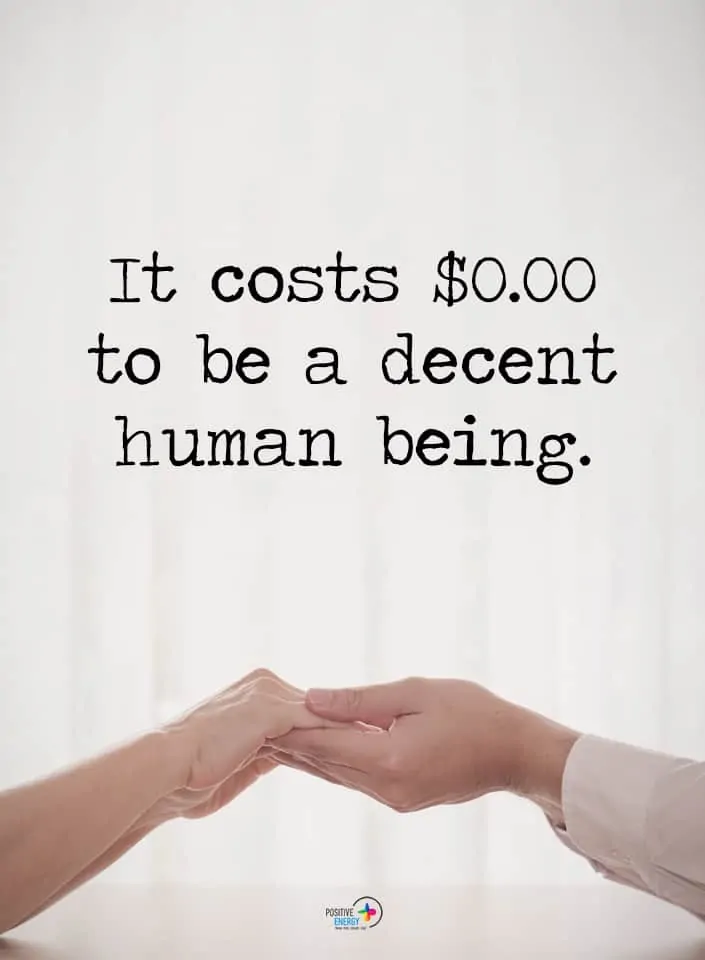An invisible illness refers to any chronic health condition with effects that don’t show up on the surface. This can include mental disorders, though it more often refers to physical ailments that don’t involve apparent disability aids or visible bodily changes.
One faces many unique hurdles when they live with these conditions, and they can be hard to handle and manage, especially when you’re first diagnosed. When people can’t see what you’re going through, it’s often harder to find support, too.
Ten of the Most Common Invisible Illnesses People Face
- Post-traumatic stress disorder (PTSD)
- Fibromyalgia
- Sleep Apnea
- Lupus
- Crohn’s Disease
- Lyme’s Disease
- Multiple Sclerosis
- Depression
- Generalized Anxiety Disorder
- Thyroid Disorders
Here are four crucial ways to deal with the challenges of living with an invisible illness.
1. Reframe The Way You Look At Your Life
Living with an invisible illness forces you to change your worldview. If you resist that paradigm shift, you can pose new challenges as you are unprepared for the unique difficulties you’ll face. Reframing your perception of your everyday life is the first step in dealing with these challenges. Here is how to begin:
· Accept and Believe Yourself
This can sound odd at first, but the reality is that people with invisible illnesses spend such a long time trying to prove themselves or hide their symptoms that they may fall into the trap of not even believing their own experiences. As strange as it is, some may even wonder if they’re faking their feelings to themselves! If you focus on acting like you’re not ill, you’re not demonstrating belief in your suffering and experiences. Accept that you have this illness and silence any doubt in your mind.
· See The Reality Of Your Illness
Here’s the reality of invisible illness: it’s a disability, and it’s going to change the way you live your life. You can’t do everything the same way you did before the illness, which can disrupt positive thinking. You have to learn to face reality and accept that you’ll need to make changes to the way you live to accommodate your illness. Until you do that, you’ll continue to struggle more than you need to.
· Use Your Talents and Skills For Passions
Invisible illness can often force you to reduce the amount of time you spend using your skills or developing your talents. This is why it’s essential to focus on using them for things you genuinely love. This maintains the joy and happiness involved with using those skills, even if it’s harder than it used to be. While the decrease in your ability may sadden you, you’ll get to keep building your skills and talents and will feel more motivated if you’re doing what you like.
· Let Go Of Expectations
People have expectations of you, and you have expectations of yourself. But if an invisible illness has changed your capabilities, then those expectations may no longer be reasonable. It’s easy to feel ashamed or discouraged when you can no longer meet the standards you once had for yourself. It can take a long time to feel comfortable with admitting that you may need to lower your expectations and live without meeting the expectations of others. Learning to let go with positive thinking can help you live one day at a time, doing your personal best – even if that best changes every day!
2. Seek The Positive Things Around You
It’s hard to focus on positive thinking when you’re facing the challenges of invisible illness. But if you don’t seek optimism and good things, you’ll wind up bogged down by the difficulties you face. It’s essential to learn to overcome negativity and find uplifting realities. Here are some ways to begin fostering positive thinking, even in the face of difficulty:
· Find Distractions
Everyone has things they love to do that can help them forget their troubles for a moment. All you have to do is find what does that for you. It may be a hobby, watching a show, listening to music, or pampering yourself. Whatever it is, make sure you have some time to do these things every day, even if it’s just for a little while. This kind of me-time can help take your mind off your challenges so you’ll feel refreshed enough to face them again when you’re done.
· Focus On Your Blessings
Every cloud has a silver lining, and no matter how bad your life is, there are little good things peppered in. Think about small things that make you smile or that you enjoy, like coffee in the mornings or a song you like to listen to. Count every single tiny blessing, like the roof over your head or the presence of a loved one or friend in your life. You’ll begin to see that there are lots and lots of things to be appreciative of amongst your challenges. Gratitude has been proven to have positive effects on experiences of pain, too, so there’s a benefit to your illness from it.
· Don’t Stop Dreaming
Yes, you have to adjust your goals to be more reasonable, but that doesn’t mean you should get rid of goals altogether! Continue to dare to dream and visualize success, happiness, and even recovery. Dreaming gives you hope, and it knocks you out of feelings of hopelessness or loss. Keep working towards your goals, even if the pace is adjusted. You can do anything you set your mind to!
· Encourage Others
If you can’t find anything positive in your life, seek an empowering way to boost your positive thinking is by creating positivity for others. You can encourage others with invisible illnesses or even do random, simple, and doable acts of kindness – like complimenting someone or tipping your waiter extra – to perform the amazing feat of building positivity. The fact that you can make joy happen for others can help you see ways to create it for yourself.
 3. Fight For Yourself
3. Fight For Yourself
One of the many things that those with invisible illness struggle with is being believed. Because your disabilities aren’t visible, people may not trust their severity, and even those who try to be understanding may forget how bad it can get. As awareness continues to be raised for those living with an invisible illness, you will need to fight for yourself and your rights regularly, so you get the fair treatment you deserve. Here is how to begin:
· Choose The Right Doctor
Some doctors bring shame to their profession by refusing to believe experiences of invisible illness. If your doctor doesn’t believe you or behaves in ableist ways, stand up for yourself and seek a different doctor. You do not have to put up with medical gaslighting or a lack of empathy from your care practitioners, and your illness deserves proper treatment from a helpful doctor.
· Advocate For Yourself
It’s easy to fall into the trap of wanting someone to rescue you or “fix” your problems with your disability. Though the support of others is valuable in this time, the fact remains that you must be your hero. Advocate for your rights. Fight for fair treatment. Don’t let others talk down to you and stand up for yourself. Your illness is actual and deserves to be treated, no matter what others say.
· Manage Yourself
What treatment is necessary for your illness? What ways can you use to manage it? Do your research and learn as much as you can about the struggles you’re facing. You’ll find management techniques that help you more than you may have imagined!
· Don’t Neglect Your Mental Health
It’s easy to slip into negative mental states when you’re dealing with an invisible illness. You may even think that your happiness must be reliant on your physical condition. Don’t fall into this trap. Make sure you’re taking care of yourself and monitoring your anxiety and depression. If you need help, seek therapy or counseling, and remember to take regular breaks.
· Pick Your Battles
Self-advocacy is indeed a constant effort, but it’s okay to pick your battles wisely when you need to rest, too. There are some people not worth your time, and there are others who will never be convinced. There is wisdom in knowing when to walk away.
4. Find Ways To Build Understanding Relationships
Some of the biggest challenges of an invisible illness lie in the fact that the people around you may not understand what you’re going through. Social support is crucial for the positive management of pain and illness symptoms, and without it, you may have trouble overcoming more complex hurdles. Here are some ways to foster understanding relationships:
· Sit Down And Talk To Loved Ones
The people that matter in your life may have difficulty understanding what an invisible illness entails. Sit down with them and talk to them at length about your experiences and, if applicable, tell them how they can help or what your new needs are.
· Invite Loved Ones To Your Doctor’s Appointments
When a friend or family member hears directly from a doctor what you’re going through, it helps them to comprehend the medical scope of what you’re experiencing fully. This can be beneficial for close relationships where the other party is having trouble truly understanding your experiences and their validity.
· Choose Close Circles Wisely
There will be people who refuse to believe in your invisible illness, and there will be toxic individuals in your life. Opt out of these relationships and instead go for supportive friends and positive people who uplift you and make you feel good.
· Find Support Groups
There are lots of people all around the world with invisible illnesses. These individuals can relate to what you’re going to and understand the difficulties of day-to-day life with such conditions. You can support each other, offer and receive advice, and build new friendships in these circles, which may even help you feel much less alone.
 Final Thoughts On Some Ways To Deal With The Challenges Of Living With An Invisible Illness
Final Thoughts On Some Ways To Deal With The Challenges Of Living With An Invisible Illness
Invisible illnesses can be complex and challenging to understand. It may take a while before you become accustomed to living with your condition and managing it reliably. Throughout the process, you will have your fair share of failures and successes. Take your time and learn how to deal with each challenge as needed, and you’ll see that you remain strong and powerful, with or without that illness.


















